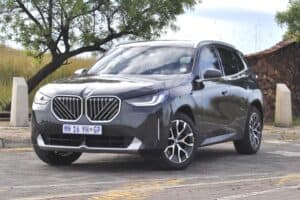Although it celebrated 70 years of local production in 2021, the worsening manufacturing struggles are starting to tell at Volkswagen.

The ongoing energy crisis and logistics challenges has reportedly been cited as some of the reasons for Volkswagen voicing renewed doubt about a sustainable future in South Africa.
Despite it being well-known that Wolfsburg’s local arm had long been certain of securing a third model at its plant in Kariega from 2026, known only to be an “SUV-type” vehicle, new claims by its group CEO has cast apparent doubt of whether local production is indeed viable.
Struggles
Earlier this year, then newly appointed Volkswagen South Africa Managing Director, Martina Biene, said it had lost production capacity of 30 000 units in the later stages of last year as a result of load shedding, plus issues relating to water supply due to dilapidated infrastructure at its home base formerly known as Uitenhage.
“That’s because we lose a lot of units when we ramp down, then we stand still, and then ramp up again but then we also lose. So, it’s better not to ramp up and ramp down a lot,” Biene told radio station Algoa FM.
ALSO READ: Euro 7 emissions ‘relaxed’ ahead of 2025 implementation
According to the latest claims though, Volkswagen Passenger Car Brand boss, Thomas Schafer, has expressed concern about the challenges facing not only Volkswagen itself, but also business in the country.
“Eventually you have to say, why are we building cars in a less competitive factory somewhere far away from the real market where the consumption is?” I’m very worried about it. We’re not in the business of charity,” Reuters quoted Schafer as saying following a visit to South Africa last week.
“Pull your weight”
In November last year, after announcing Biene as the new head of Volkswagen South Africa in place of Robert Cisek, who now heads the Small and Compact Products portfolio, Schafer, told the assembled media that “each region must carry their weight” and that while Volkswagen South Africa “has always been a joy” to work with, looking back to past no longer applies.

“Moving forward, what is the plan? There has to be one. Volkswagen South Africa has always been a cornerstone of Nelson Mandela Bay and that has to continue,” Schafer said.
“There is no way back. It is a myth that [current matters] in South Africa will stay as is. Change will have to happen”.
Export worries
As is well known by now, the securing of the SUV has been pushed extensively by Volkswagen South Africa in lieu of Polo production, for export markets, ending next year when Wolfsburg commences sales of the all-electric ID.2all.
Exported to 38 countries in both left-and-right-hand-drive, the Polo and Polo Vivo will remain in production at Kariega after 2025, but in the former’s case, minus key overseas markets in Europe such as the UK once sales of the ID.2all kicks-off in 2025.

The result of not only the more stringent Euro 7 emissions regulations still set to be implemented in 2025, but also the ban on combustion engine vehicle sales on the Old Continent by 2035, the Polo’s axing will be followed by that of the T-Cross in 2025 as Volkswagen prepares for an all-electric future before 2030.
Last year, the two-millionth Polo departed Kariega 26 years after production began, which despite being hailed an “excellent milestone” by Volkswagen South Africa’s Production Director Ulrich Schwabe, received unrelated worries from Schafer regarding the viability of adapting it to Euro 7 requirements.
“If that is true [the expected impact of EU7 on the price of cars], we definitely won’t invest anymore and we’ll just keep the plan to electrify as quickly as possible,” Autocar quoted him as saying on the sidelines of the Los Angeles International Auto Show last year.
South Africa can be a success
In a thinly veiled swipe government, Schafer, who headed Volkswagen South Africa between 2015 and 2020 before heading to sister Volkswagen Group brand Skoda, told Reuters, “there’s a realistic chance that South Africa, with enough focus, with all the raw materials in the neighbourhood, they could be a champion”.

Despite it being hinted by Biene in June that an announcement confirming the mystery SUV for South Africa would be made around October or November, nothing has yet emerged in spite of the executive saying it remains “confident” approval will come Kariega’s way.
As it stands, no comment regarding the newcomer or on Schafer’s comments have been made by Volkswagen South Africa.
NOW READ: EVs and third locally-made model key to Volkswagen’s future
Support Local Journalism
Add The Citizen as a Preferred Source on Google and follow us on Google News to see more of our trusted reporting in Google News and Top Stories.






